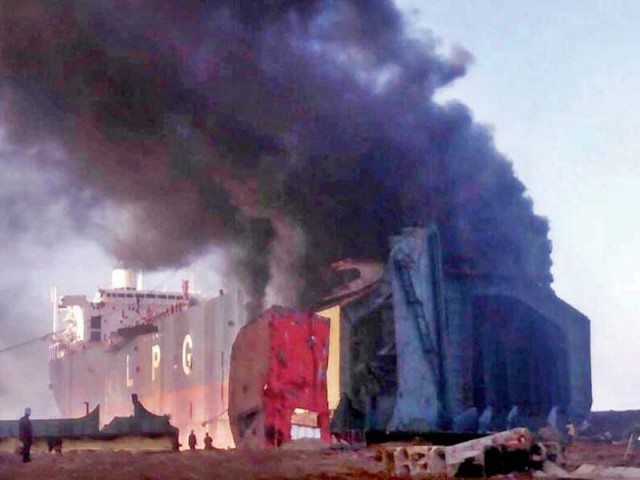Brussels/Chittagong — The German container
ship “Viktoria Wulff” is currently being dismantled on the beach. German ship
owner Wulff went bankrupt in August and the insolvency administrator is
currently selling off the company’s remaining vessels. The “Viktoria Wulff”
became the youngest container ship to be sold for demolition at an age of only
10 years without a previous accident. Dismantling at Arefin shipbreaking yard
in Chittagong, a 35-year old man, who was made to work without any safety
measures, now was struck on the head by a heavy iron piece and died.
“The story of the ‘Viktoria Wulff’ is
characteristic for the failed business practices of German KG ship owners as
well as ship funds. Nearly 600 ships have been sold due to insolvencies and
financial problems since 2008, many of which ended up on the South Asian
beaches. The bill for the ship owners’ and investors’ greed for profit is paid
by workers and the environment in destinations like Bangladesh, where ships end
up without any consideration of the human and environmental costs”, says
Patrizia Heidegger, Executive Director of the NGO Shipbreaking Platform. “It is
a scandal that German liquidators, who are appointed by the courts, sell
end-of-life ships to substandard breaking yards risking peoples’ lives through
deals that are in clear breach of international and even domestic Bangladeshi
law just to sort out the books for German ship owners”.
In Bangladesh, fatal accidents in the
shipbreaking industry remain very frequent, a situation that is widely known –
but largely ignored – by the shipping industry, insolvency administrators
selling off unwanted ships, as well as by the brokers and cash buyers setting
up the end-of-life deals. German owners have had at least 32 old ships ramped
up on the beaches of Bangladesh this year. With 83 end-of-life vessels sold to
beaching yards in South Asia in 2016, German ship owners top the list of global
dumpers together with Greek shipping lines. Several end-of-life sales were in
direct breach of the European Waste Shipment Regulation that bans the export of
hazardous waste to developing countries. The “Viktoria Wulff” was most probably
traded through an anonymous cash buyer using the end-of-life flag St Kitts and
Nevis before it was beached in Chittagong.
“Only in 2016, at least 19 shipbreaking
workers were killed and another 11 severely injured in the Bangladesh yards.
The accident rate remains shockingly high and is not coming down, despite the
promises of the yard owners and cash buyers”, says Heidegger. “The shipbreaking
yards have to be moved away from the muddy beaches to clean and safe ship
recycling facilities using quays and docks where cranes can be operated to
safely move cut steel sections. Otherwise, the death count of beaching will not
come to a halt”.
Source:
recycling portal. 13 December 2016



